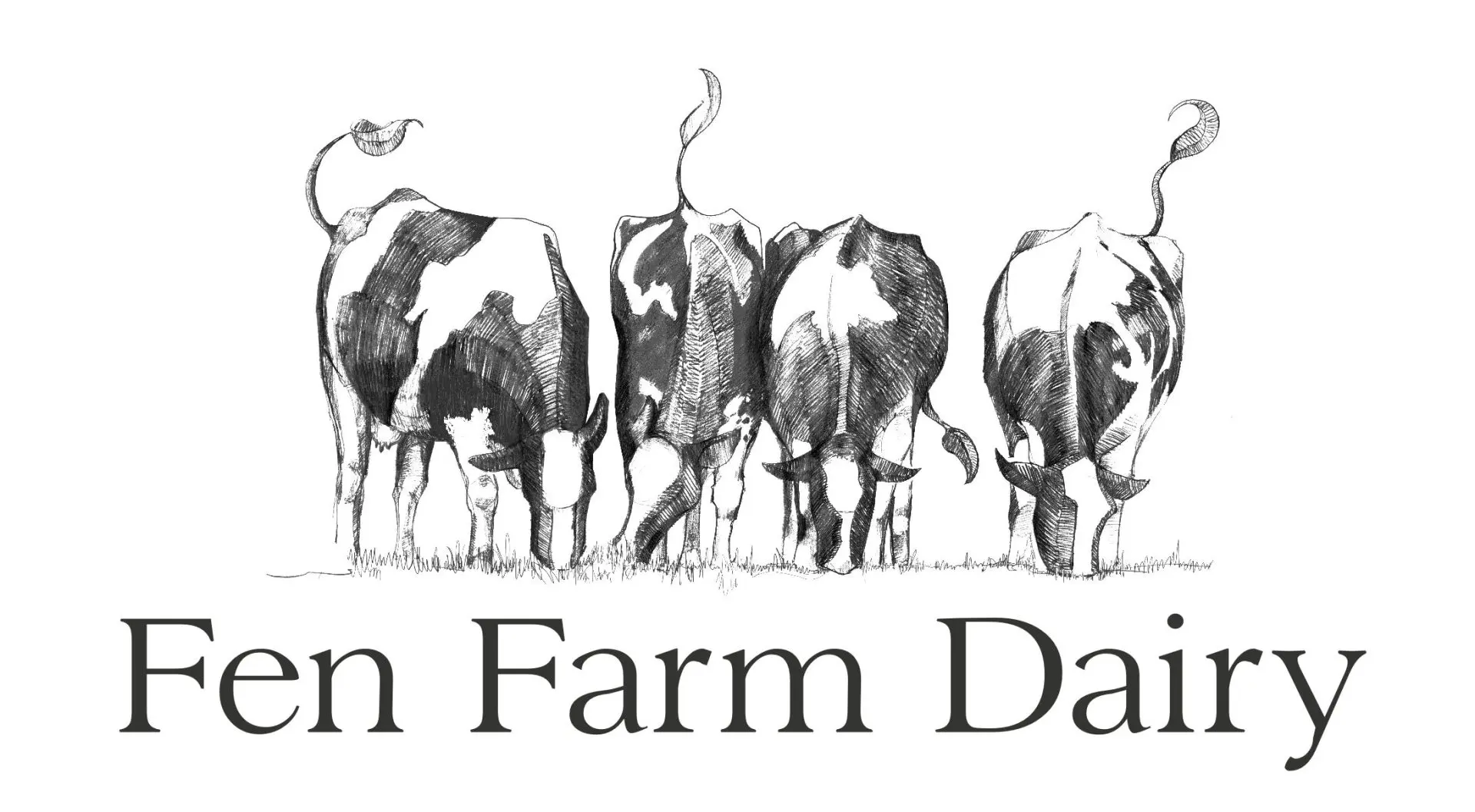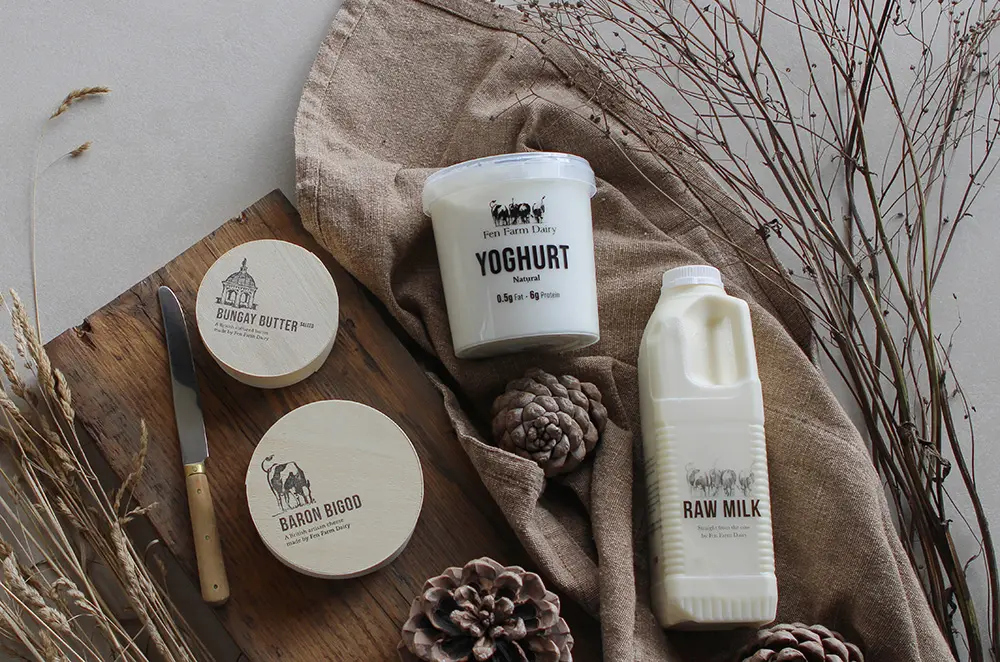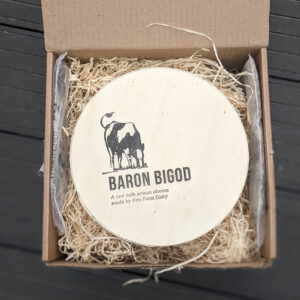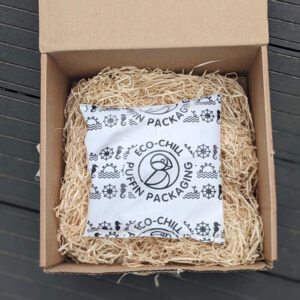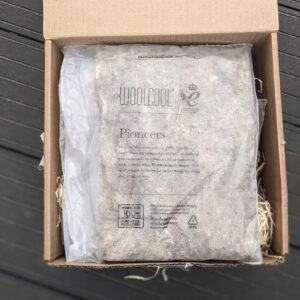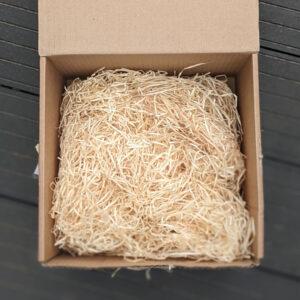
Website and Web Orders
- For most of the UK, shipping is £5.99, or free for orders over £48.
- For the following postcodes, shipping is £15.95 or free for orders over £65
AB30, AB33, AB34, AB35, AB36, AB37, AB38, AB42, AB43, AB44, AB45, AB53, AB54, AB55, AB56, DD8, DD9, GY10, GY9, HS1, HS2, HS3, HS4, HS5, HS6, HS7, HS8, HS9, IM1, IM2, IM3, IM4, IM5, IM6, IM7, IM8, IM86, IM87, IM9, IM99, IV21, IV22, IV23, IV24, IV25, IV26, IV27, IV28, IV40, IV41, IV42, IV43, IV44, IV45, IV46, IV47, IV48, IV49, IV51, IV52, IV53, IV54, IV55, IV56, IV63, KA27, KA28, KW1, KW10, KW11, KW12, KW13, KW14, KW15, KW16, KW17, KW2, KW3, KW5, KW6, KW7, KW8, KW9, PA20, PA34, PA35, PA36, PA37, PA38, PA39, PA40, PA41, PA42, PA43, PA44, PA45, PA46, PA47, PA48, PA49, PA60, PA61, PA62, PA63, PA64, PA65, PA66, PA67, PA68, PA69, PA70, PA71, PA72, PA73, PA74, PA75, PA76, PA77, PA78, PA80, PO30, PO31, PO32, PO33, PO34, PO35, PO36, PO37, PO38, PO39, PO40, PO41, PH30, PH31, PH32, PH33, PH34, PH35, PH36, PH37, PH38, PH39, PH40, PH41, PH42, PH43, PH44, PH49, PH50, RD1, RD2, RD3, RD4, TR21, TR22, TR23, TR24, TR25, ZE1, ZE2, ZE3.
- For some remote Scottish postcodes and Northern Ireland we are unable to deliver – sorry!
It is not straightforward to merge multiple orders into one delivery, so we would always advise trying to get everything in one order. However, if you have ordered twice and it makes sense to put it in one order, please contact the office and they will do their best to merge the orders for you.
Once your order has been placed on the website, you will always be notified by text message on the morning of your delivery.
Are you a subscriber? You will be notified when your automatic payment is taken and we will start to process your order on the next working day. Please note our dispatch days are Mon-Thurs. We do not dispatch on the weekends.
Please see the table below to find out when your order should arrive. Our courier partner will contact you on the morning of your delivery.
| PAYMENT | DISPATCH | DELIVERY |
| Mon 8am – Tues 8am | Wednesday | Thursday |
| Tues 8am – Weds 8am | Thursday | Friday |
| Weds 8am – Thurs 8am | Monday | Tuesday |
| Thurs 8am – Fri 8am | Monday | Tuesday |
| Friday after 8am | Tuesday | Wednesday |
| Saturday (before 8am Sun) | Tuesday | Wednesday |
| Sun 8am – Mon 8am | Wednesday | Thursday |
Occasionally there will be delays due to unforeseen circumstances. We do not dispatch on Bank Holidays.
Generally it is not necessary to arrange to collect your order from the farm. Most products are sold in the shops, and website orders will be dispatched via courier. We do allow collections from the farm however, if neither the shops or website work for your situation. In this scenario, please always contact the office in advance to avoid any disappointment.
We use multiple couriers, depending on the area of the country to which the parcel is being delivered. Generally we use DHL (Inxpress) and APC. Occasionally we also use DPD through busier periods.
To abide by Scottish law, we are unable to ship any of our raw milk into Scotland. If you have any questions please contact [email protected]
How we farm
We choose not to become certified organic (for reasons explained below) but we do practice various organic farming methods. For example, we do not use artificial fertilisers on many of our crops and we do not spray our pastures. Our cows graze on the species-diverse marshland meadows immediately surrounding our farmyard. They are home to rich ecosystems, diverse with wildlife and this landscape provides our cows with a richer and more varied diet than they would receive from a simple grass pasture. We also grow most of our cows winter feed ourselves, in the surrounding landscape. We don’t use artificial fertilisers on our winter herbal leys, just good old muck from the cows. This practice allows us to vastly reduce the need to buy in additional feedstuffs from outside our own farm.
Being certified organic can create a very rigid set of criteria in practice, which can become problematic for dairy farms during drought years if the weather makes it hard to grow all our own feed on the farm. Organic feed often needs to be imported from across the globe. It is highly priced and can entail thousands of food miles. Our approach allows us to practice as many organic principles as possible, while maintaining the flexibility to make practical decisions during challenging growing years.
On the majority of our land, we do not use any sprays or artificial fertilisers. We do not spray our grazing pastures or the herbal lets we grow for the cows winter feed. However on our wheat crops, which are away from the main dairy farm, we do currently use pesticides and herbicides.
We vaccinate our herd to protect our cows against diseases such as BVD, IBR and Leptospirosis. These diseases can spread rapidly amongst the herd and can cause significant suffering for a cow. Our policy is always to put herd health first, to allow our cows a happy, healthy life and to reduce the need for veterinary intervention.
We do not use any growth hormones in our herd. This practice is most commonly associated with the USA and is illegal in UK dairy farming.
We use antibiotics in our herd, but only when absolutely necessary for the health and welfare of an animal.
If a cow has received antibiotic treatment, we follow strict withdrawal period procedures so that milk or meat containing antibiotic residues does not enter into the human food chain.
We have not tested the A2 status of our herd, however what we do know is that the Montbeliarde breed of cows are high carriers of the A2 gene. We have also been breeding our herd to bulls with the A2 gene. This genetic trait helps improve the cheesemaking quality of the milk. So whilst we don’t know for sure how many of our cows are A2, it is likely that our herd is high in A2 due to the breed and genetics.
All of our calves are grouped into pens of 6, split into females and males, and they stay together for the first two years of their lives. The females, known as heifer calves at this stage, are generally reared to become dairy cows in our own herd. The males, known as steers, as well as a few heifers of a beef breed, are reared here on our farm and live a free-ranging life, to the point where they are ready for fattening to be slaughtered as an adult animal.
We remove the calves from the mothers as quickly as possible after birth, and before the maternal bond has formed. This is the most humane way, as recommended by the RSPCA. The distress to mother and calf using this method is minimal and we see happy contented mothers and calves within hours.
The main reasons for separating calves and mothers are the safety of our farm team and the safety of calves. Keeping mothers and calves separate helps to avoid injury to all and also greatly reduces disease transmission on the farm. All of our calves receive their mother’s colostrum milk. They are a happy and playful bunch!
Our cows spend as much of the year as possible grazing on the pastures behind the farm, eating the diverse array plant species which grow on our water meadows.
During the cold winter months, the pasture stops growing and the fen is liable to flooding. At this time, we bring the herd into our purpose-built open sided barns. During these months, we feed our cows on a diet of mostly homegrown forage (grass, herbal leys and wholecrop), which we grow on our own land, within 5 miles of our farm.
Our ambition is to feed our herd on 100% homegrown forage without having to buy anything in. Every year we get closer to this target, but we do still buy in a very small amount of protein, which comes from rape extract meal grown in the UK, as well as some vitamins and minerals which we use to top up the forages when the cows are in the shed in the winter months.
We try to use the closest slaughterhouse whenever possible, to minimise the stress of travelling for our animals.
Much of our beef goes to local restaurants and is sold in our own farm shops. The beef from our retired dairy cows is also sold to local restaurants, meaning nothing is wasted.
We are working tirelessly to prove that dairy farming DONE RIGHT, can be part of the solution to climate change and healthy food systems, not part of the problem. For details of everything we’re doing here on the farm, please visit our Greener Farming page (LINK).
You can also follow our latest environmental developments on our YouTube channel and social media platforms.
Here are our handles:
Instagram/Threads/TikTok/X: @fenfarmdairy
Facebook: /fenfarmdairy
YouTube: @fenfarmdairy8629
Recycling
We put a lot of thought into our packaging, Here’s the low down on what to do with your packaging once your order is safely inside your fridge or has already been eaten!
All cardboard packaging and leaflets can be recycled in the usual way. Below are some ideas for our more unusual packaging. Unfortunately the paper we use for wrapping our cheeses can’t currently be recycled, but we’re working on two solutions for this and will keep this page updated with any changes.
Reuse:
Simply add a napkin to create a unique basket for your bread or crackers. They also make brilliant art projects for children to decorate.
Disposal:
Break up the boxes into smaller pieces for awesome kindling, or place it in your garden compost or kerbside compost bin if you have one.
Reuse:
The Puffin Chill ice packs we use are made of high-quality, non-toxic materials, making them ideal for picnics or lunchboxes!
Disposal:
Once no longer required, they can be defrosted, emptied of water and recycled.
Reuse:
These 100% natural wool liners can be used to fill cushions or soft furnishings. They also make cosy beds for pets and work well as draft excluders or pipe insulation.
Disposal:
Separate the wool from the plastic film. The wool can then be composted in you garden or kerbside compost and the plastic recycled.
Reuse:
Wood wool makes very effective kindling for your fire or can be used as bedding for hamsters and rabbits.
Disposal:
Our wood wool is 100% biodegradable. If you don’t want to re-use it, it can go on your compost heap or in your kerbside compost bin.
Product Info
The way we produce our Raw Milk here on Fen Farm far exceeds the expectations of safe raw milk production in the UK. We test every batch of milk in our in-house lab testing facility before it is released for sale. We take raw milk safety extremely seriously, as we do with all our products, and never release milk for sale unless we are confident in it’s quality.
Our milk is 100% from our own herd, right here on the farm – it always has been, and always will be. That is what makes our story special and real.
We are very unique in being a true farmhouse cheesemaker and dairy producer, and being able to oversee all of the steps in the process from grass, to cow, to milk, to end product, makes our products very special.
To abide by Scottish law, we are unable to ship raw milk to Scottish addresses.
Raw Milk: Not recommended for drinking after the use by date.
Yoghurt and butter: Eat within the use by date. The bacteria growth after this time will probably still be of a safe level but the product will taste inferior.
Cheese: We conduct shelf life tests far longer than the advertised dates but we recommend eating the cheese within the use by date for the best eating experience.
About Baron Bigod
We pasteurise our Baron Bigod, cultured cream and yoghurt but we don’t pasteurise our milk or butter.
We pasteurise Baron Bigod and Skyr but we don’t pasteurise our milk, cultured cream or butter.
250g cheese: On the barcode on the back of the cheese, next to the use by date.
1kg cheeses: The batch date is underneath the lid.
3kg cheeses: The batch date is on top of the lid.
All of our dairy products are freezable, however do not freeze milk in glass bottles as this will cause the bottle to smash. If you wish to freeze your milk, please purchase it in plastic bottles. (Please note, glass bottles are only available to our shop customers, not currently for mail orders).
We recommend cutting a large wheel of cheese into portions prior to freezing, so that you can take it out in small amounts as it is not recommended to freeze any products more than once. Once frozen, cheese will not continue to ripen, so we advise allowing your cheese to mature in the fridge to your preferred age before freezing.
Baron Bigod works very well with a sweet, alcoholic beverage such as brandy. It is also very good with fruity, sweet alcoholic drinks such as perry and cider – Aspalls Draught Cider pairs nicely.
For food pairings, we love eating Baron Bigod with apples, pears, medlar, quince and walnuts.
Goo comes with maturity. To find the age of your cheese, check the barcode label for the batch number which is the date your cheese was made.
Firm texture:
– Lemony/lactic flavours:
– Eat at 4-5 weeks of age.
Firm centre:
– Gooey edges, earthy/mushroom/savoury flavours:
– Eat at 5-6 weeks of age.
Gooey all through:
– Pungent/farmyard/full flavours:
– Eat at 7 weeks of age and older.
Ageing tips:
– Only cut once desired maturity is reached.
– Bring to room temp 2hrs before eating.
– Mature in fridge 4-8 °C.
– Keep well wrapped.
– Cheese will not mature further once frozen.
Farm and Shops
Generally, we do not offer farm tours and the farm itself is not open to the public. We are a busy working farm and not currently set up for frequent tours. That being said, our farm shop is situated at the front of the farm next to the collecting yard and you can see the cows up-close at the gate by the shop as they queue to be milked, from 2:30pm until the early evening.
Just a couple of notes about saying hello to the cows:
- Please don’t feed the cows as human food can really make them unwell.
- Please don’t touch the cows. They prefer saying hello from a slight distance.
- Please supervise children at all times and help them to understand these rules.
- We ask that you don’t allow your dog to approach the cows as they are not used to dogs and can become very scared.
Farm:
7 days per week, 5am – 8pm
Eye Farm Shop
Monday to Thursday 7.30am – 6pm.
Friday 7.30am – 7pm.
Saturday 8am – 6pm.
Sunday 10am – 3pm
Bungay Farm Shop
6am-8pm Monday to Sunday
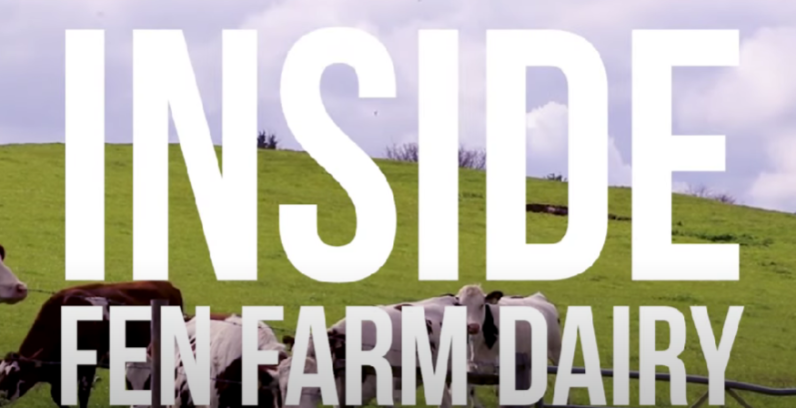
Inside Fen Farm Dairy: What’s so special about milk?

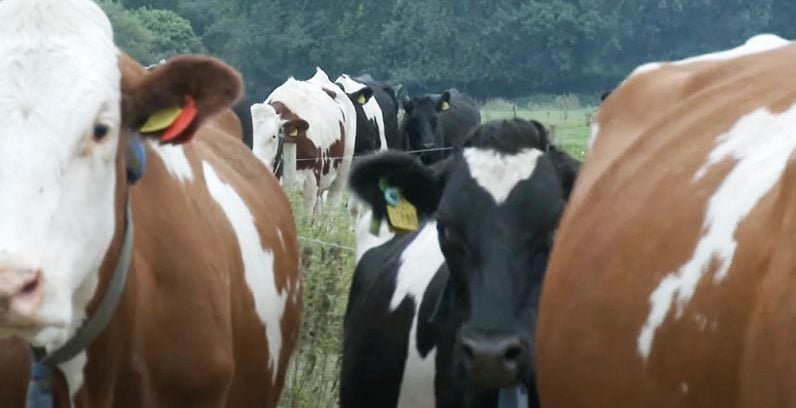
Episode 1 – Behind the scenes at Fen Farm Dairy

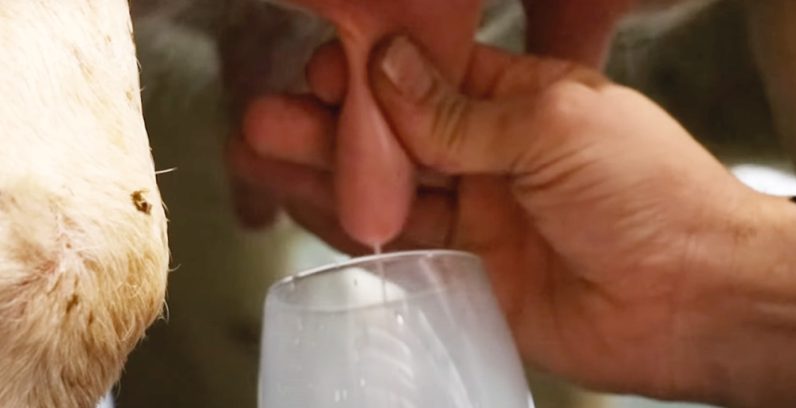
Inside Fen Farm Dairy: How do you milk a cow?


Heads Up!
Any products in your basket will be removed in order to set up this subscription.

Change Frequency?
You will lose your selecction if you change to a different frequency. Are you sure you want to change?
Clear your box?
This action will clear your current box selection, click cancel to continue shopping, or "That's OK" to clear your box and view single purchase products.

Empty Your Box?
Are you sure you want to remove everything you have selected?

Your box is full!
You will need to remove something before you can add any more, or choose a larger box.

Add to basket?
Adding this product will remove your membership from the basket. If you want both, please checkout and come back?


